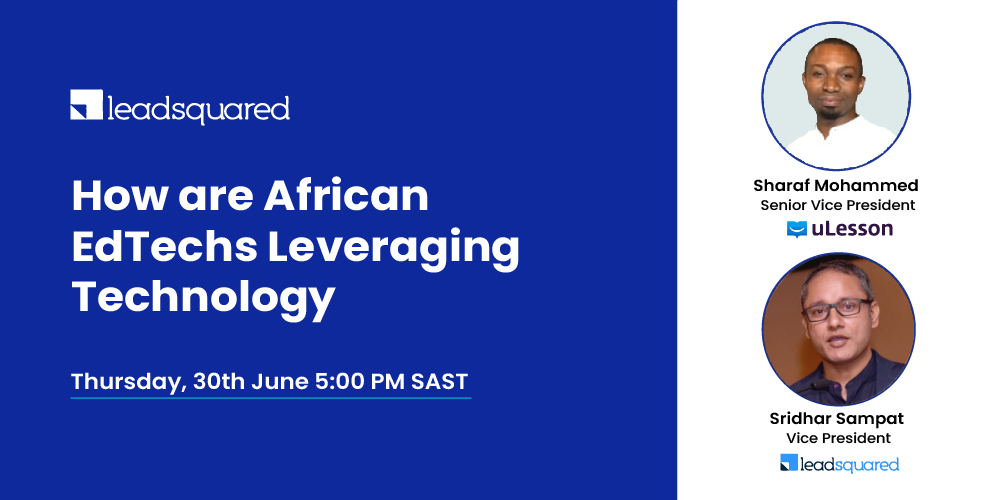Mr. Sharaf Muhammed, senior vice president of operations of uLesson, shares his journey on creating an amazing EdTech platform.
Speakers:
- Mr. Sharaf Muhammed, senior vice president of operations, uLesson
- Mr. Sridhar Sampat, vice president of partnerships and business development, LeadSquared
About 40% of the entire population of the African continent is below 15 years of age, allowing tremendous potential for growth in higher education. It is one of the fastest growing economic regions of the world today, despite infrastructure and technological challenges.
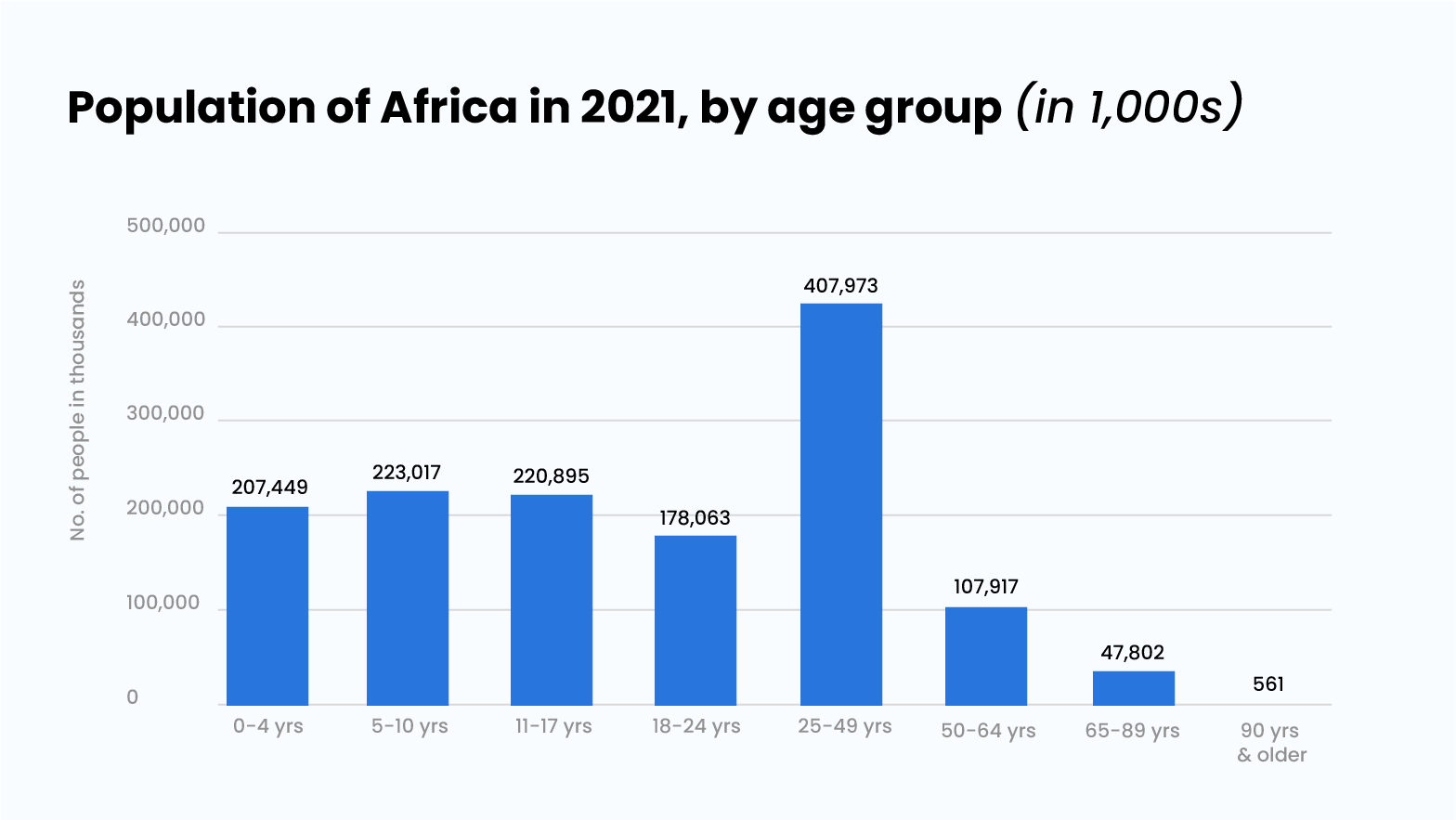
Companies such as uLesson are trying to address the gaps in education, infrastructure, and EdTech. The African e-learning market is quite substantial, being valued at $2.4 billion in 2021 and is expected to exhibit a CAGR of 11.2% within the next 6 years.
The future for the role of technology in education in Africa is extremely bright. There’s a substantial amount of primary school enrolment in the continent. Although 80% of the kids go to school, the number of kids continuing towards higher education drops significantly.
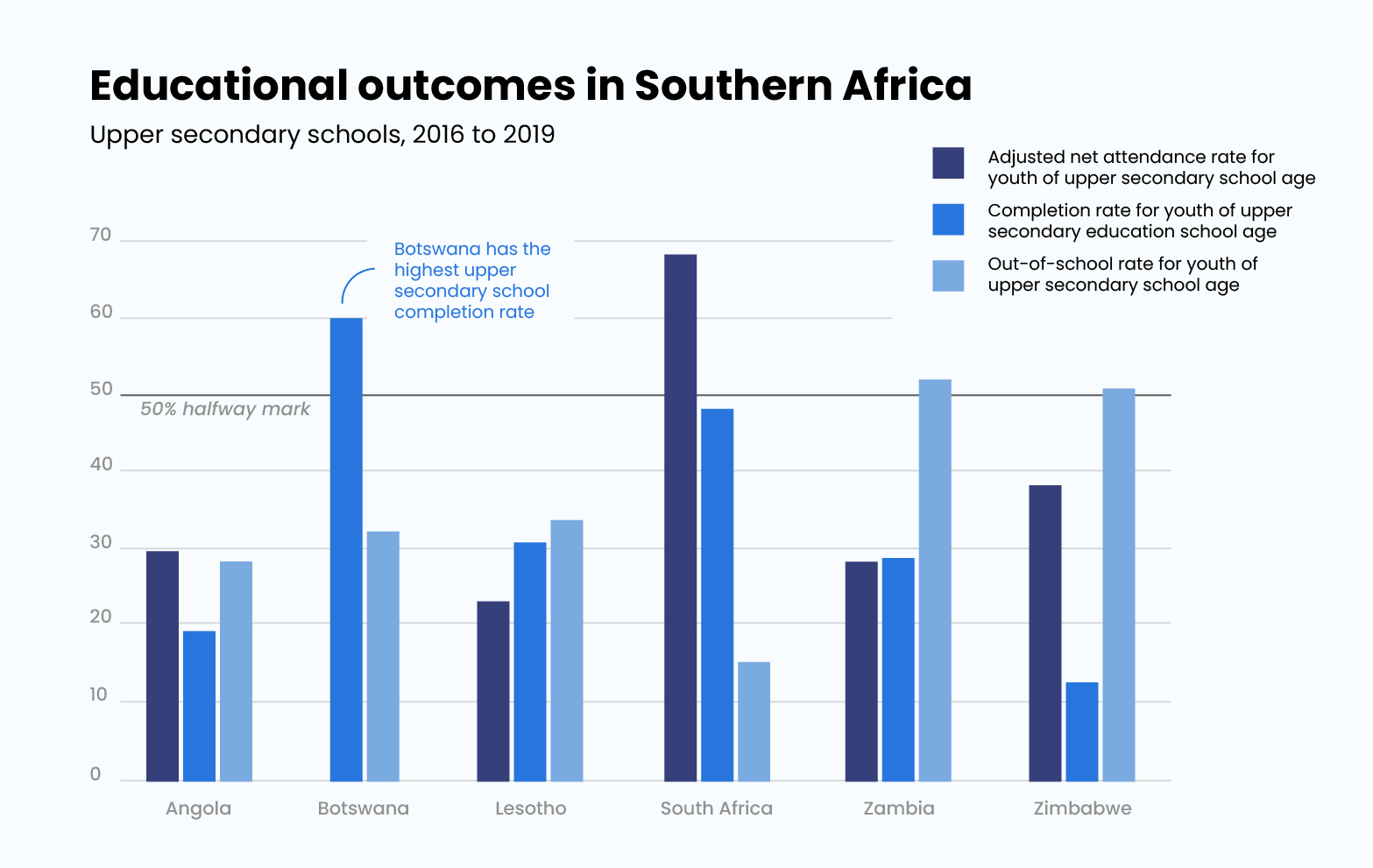
PROBLEMS IN THE EDUCATION SYSTEM IN AFRICA
- Completion of formal education without losing interest
The key problem the country is facing today is to ensure that the kids complete their 10-12 years of formal education without losing interest.
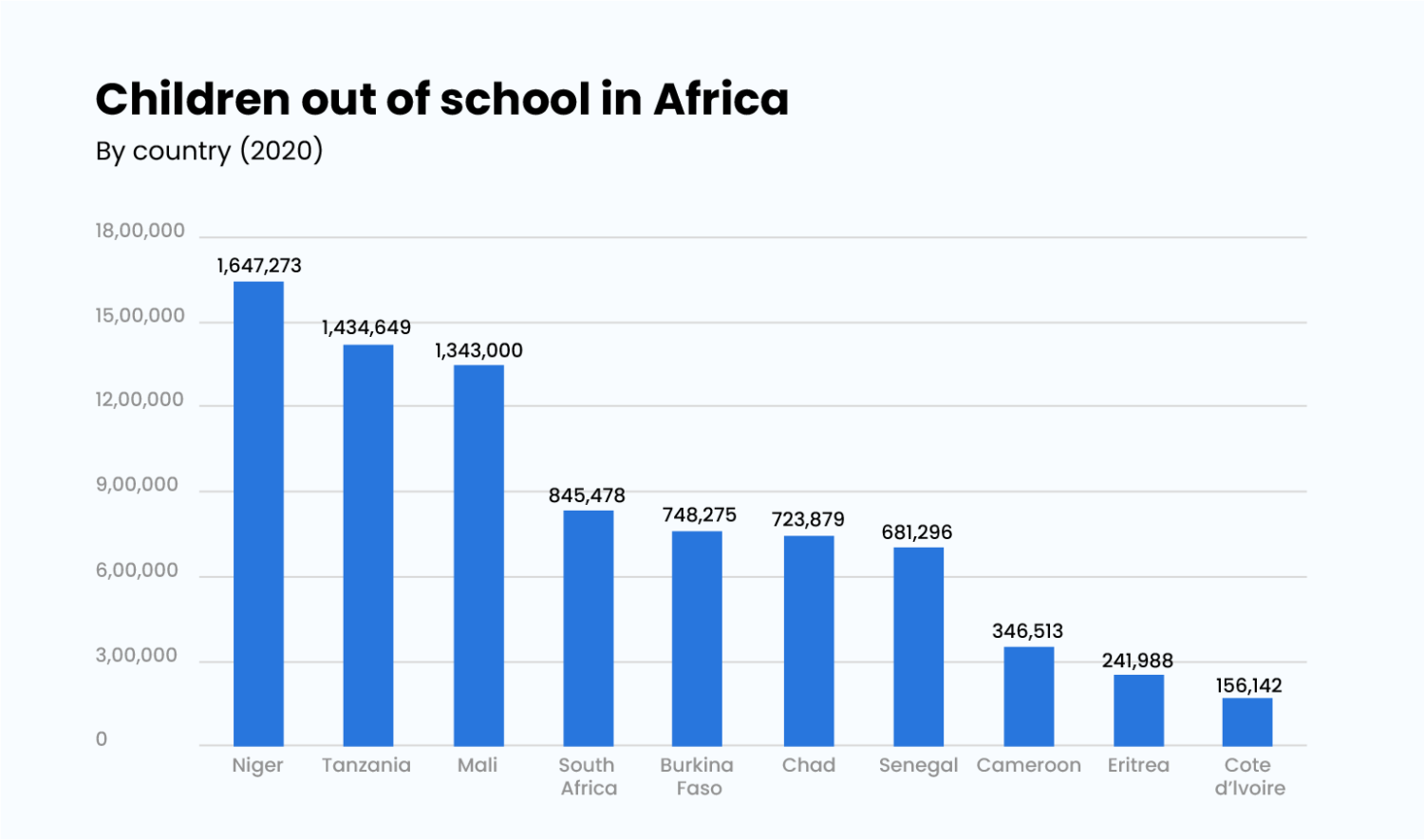
- Affordability
There is also an issue of affordability as the college fees gets more expensive as the kids progress higher up.
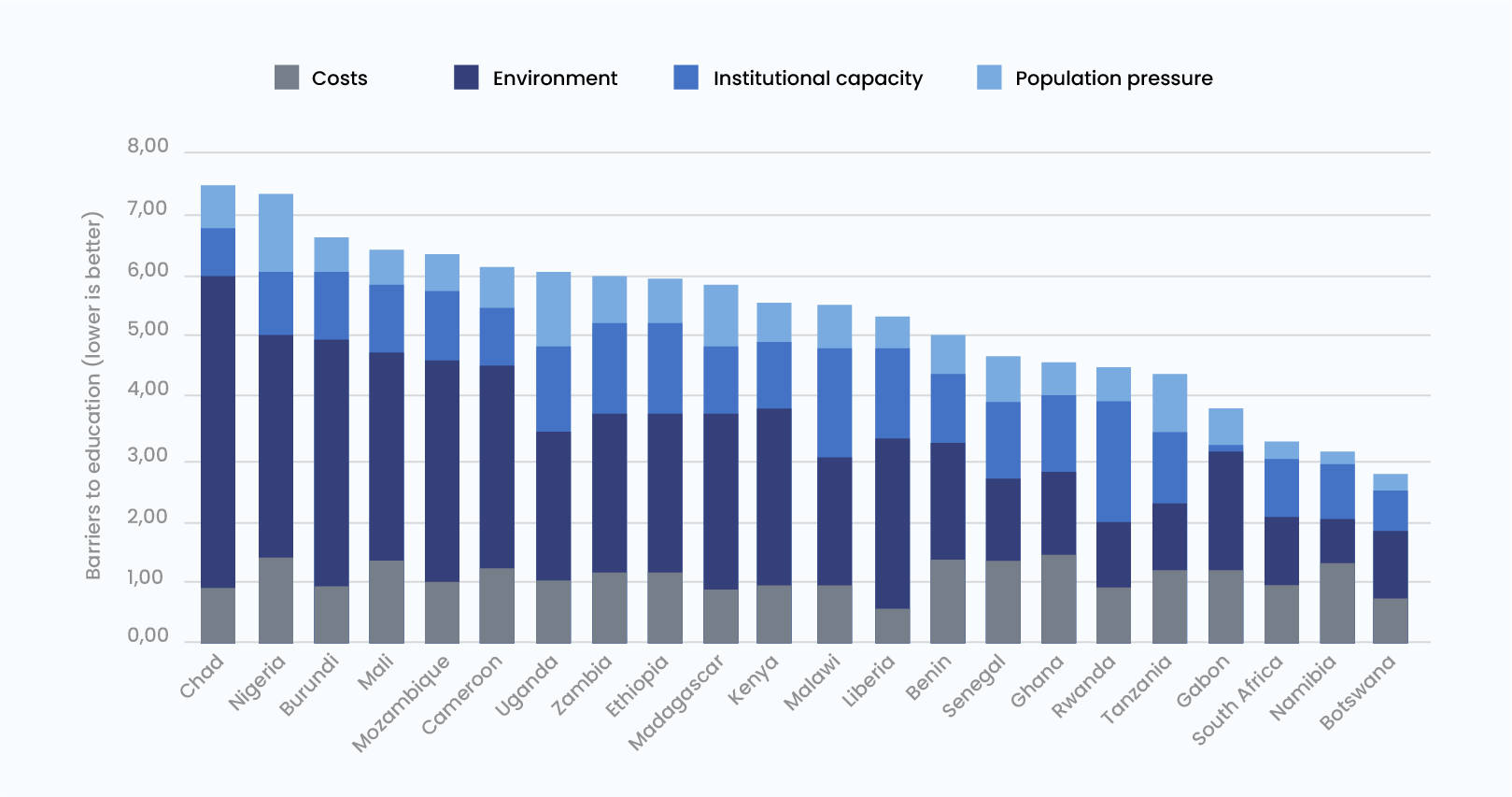
- Lack of institutions
There is a lack of institutions in accordance with the youth population in Africa. Since there are not many institutions to accommodate every student, there’s a lot of competition to get into those schools.
- Accessibility
As some schools are not accessible to African society, some people don’t get the opportunity to attend one.
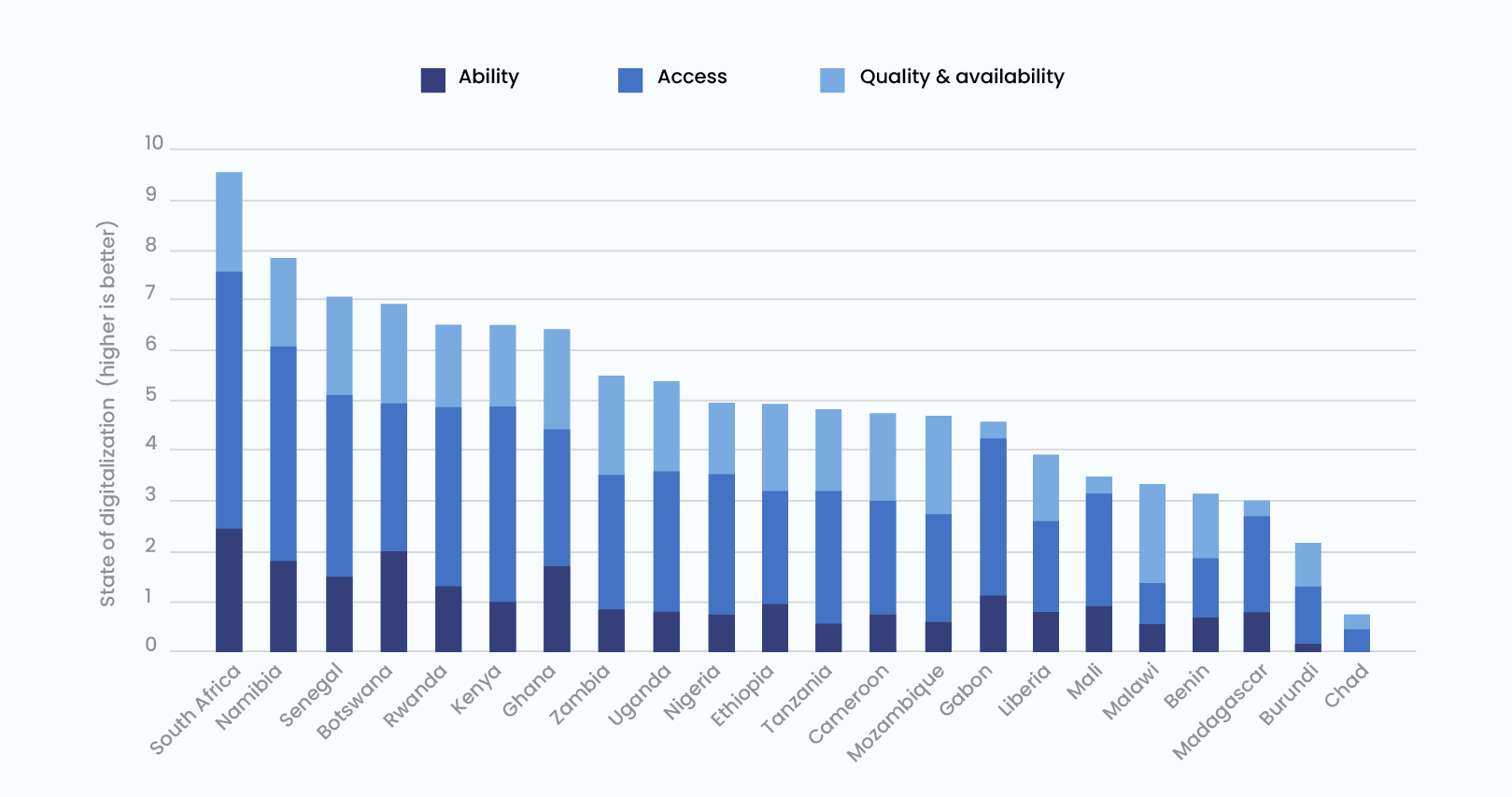
- Infrastructure
The challenges occur in terms of infrastructure as well as some ill-equipped science and computer labs. The schools which have a science lab do not have the resources to perform experiments.
- Quality of education
Another issue is that public institutions do not have enough qualified tutors. Teachers have no practical knowledge to conduct experiments.

Summing up, the biggest challenges that Africa is facing are affordability, accessibility, and quality of education. These are the major reasons for the low literacy rate in most countries of the African continent.
EDTECH’S IMPACT ON EDUCATION
EdTech brings digital to classrooms wherein the kids can experience learning through digitalization. This helps them acquire new skills and access talented and knowledgeable tutors. The interesting thing about technology is that it helps the business to expand, scale and multiply extraordinarily.
Device distribution to students helps them dedicate themselves towards learning instead of using their parents’ devices. But as these devices are expensive, EdTech companies need to make them accessible to students.
As Africa has one of the most expensive data rates across the world, uLesson is partnering with MTN to provide sponsored data so that the child need not worry about the data rates.
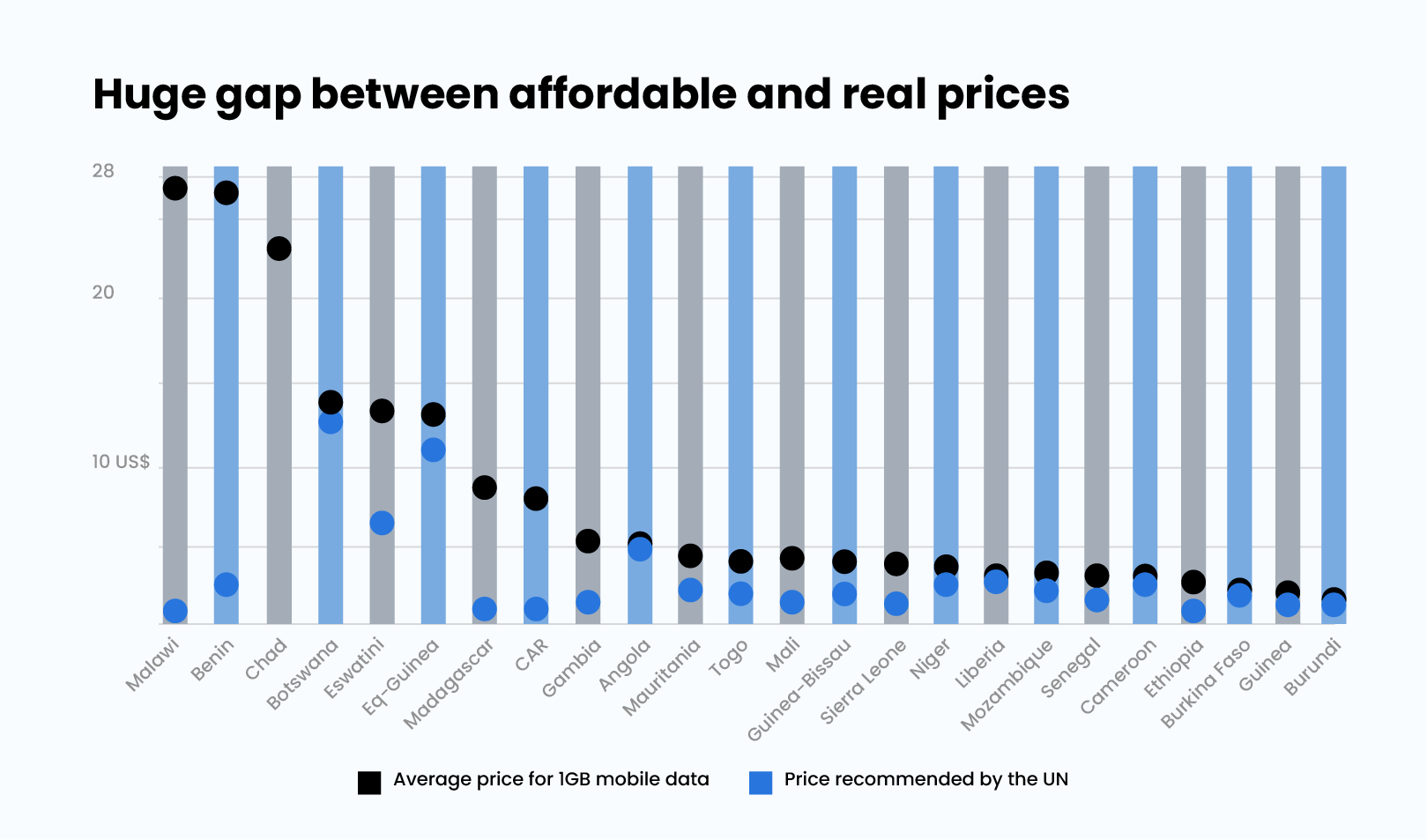
Certain opportunities come along with new partnerships that can allow a student to pay mobile broadband rentals over a period to help them financially as well.
Partnerships are a very important part of growing the EdTech ecosystem. For example, uLesson forms partnerships to ensure that they bring an experienced and a capable lender to help parents and students obtain devices and pay over a period of around 6-12 months.
Some of the ways in which EdTech is impacting education in Africa are:
- Because of the way the content is curated, kids get access to global standards and opportunities.
- The kids will be able to compete with various parts of the world as they are exposed to a competitive self-based environment.
- The content is democratic and has the farthest outreach as edtech levels the playing field to create equal opportunities for growth.
- Pause, stop, rewind, or replay options aid in learning at different paces and ways.
- EdTech also has its advantages in learning from anywhere, anytime, from any corner of the world, as far as they have the devices and the access to the internet.
- They are positioned supplementary to the learning in classrooms in a way that it complements the contents that are learnt at school.
- EdTech enables self and visual-based learning through digital education.
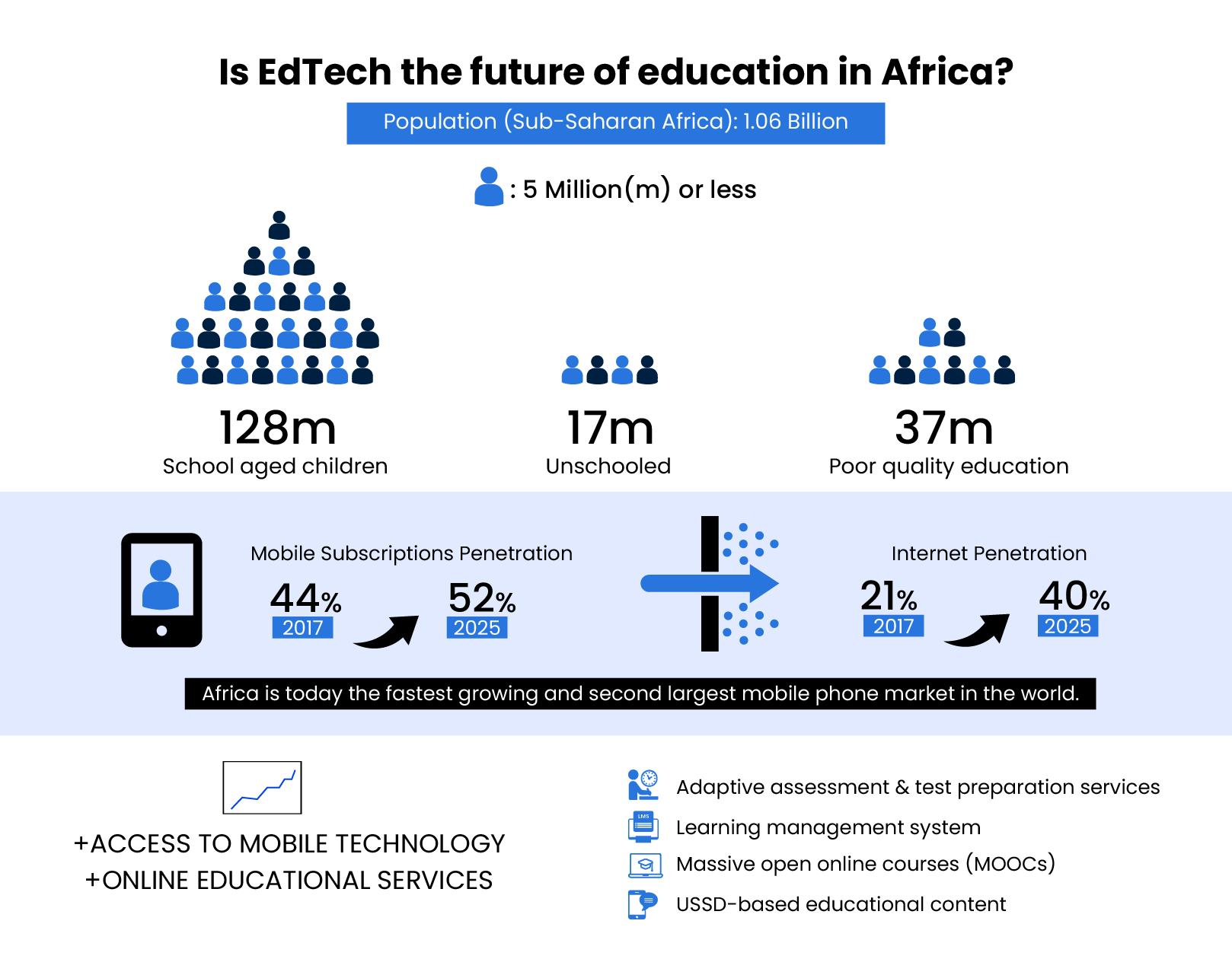
HOW IS ULESSON TRANSFORMING LEARNING
uLesson aims to provide learning resources by considering all the factors and challenges to ensure easy learning, demonstrating visually over 7,000 videos across various subjects through K1-12.
uLesson also has live tutorials, called live lessons, wherein the student has the option of joining a live lesson, where they will be able to interrupt the tutors by asking questions as and when they’re teaching and has accelerated its demand in the education sector.
These videos help students understand individual topics as they come with practice questions and are especially useful as they have one-to-one tutoring, live lessons, and everything else.
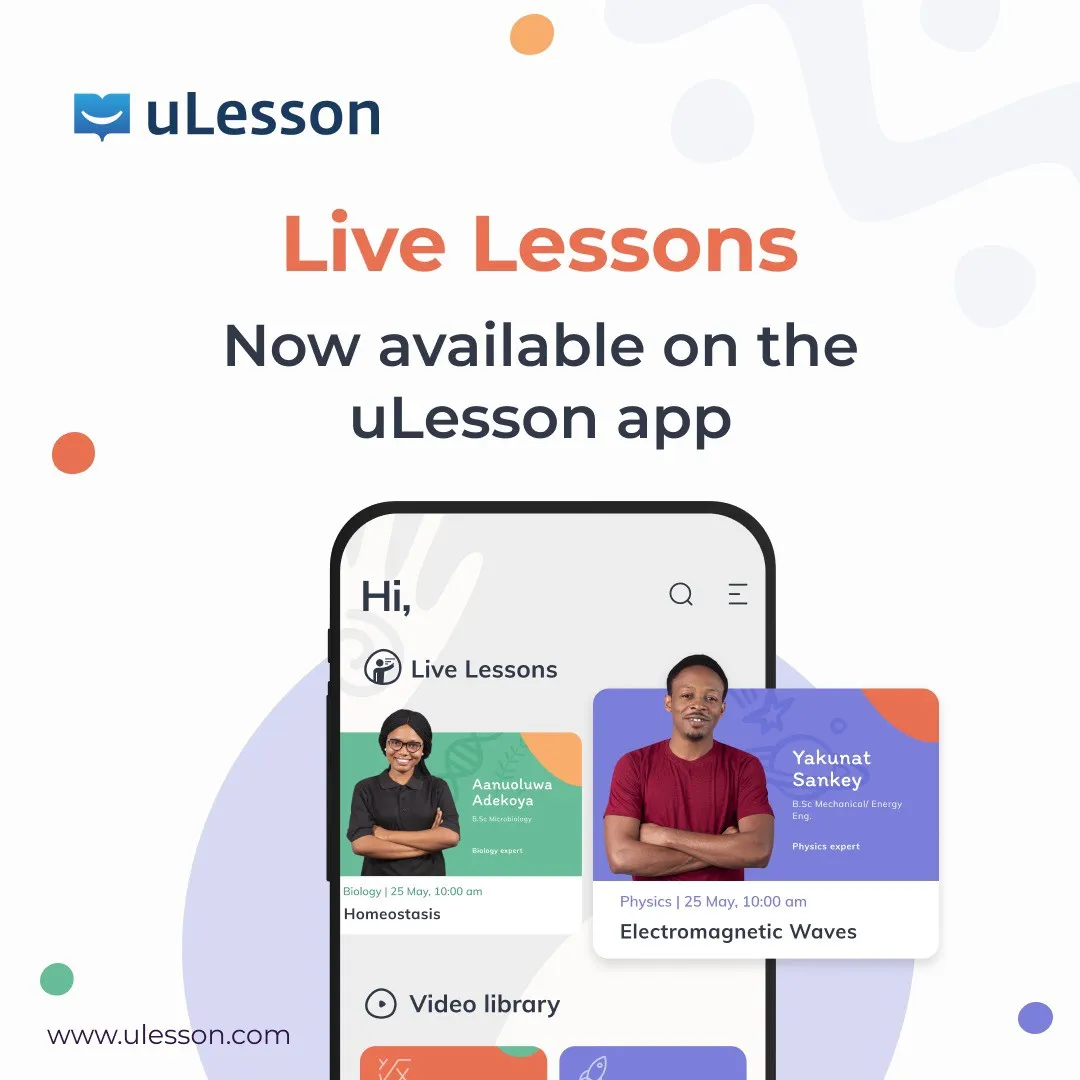
The learning is provided with animation and visuals, in such a manner that they understand concepts. uLesson believes in better preparing kids for tertiary learning than just cramming and bundling them into tertiary institutions.
There are two sides of the uLesson story; one is on the content-side and what benefits uLesson brings to the student, and the other side of it is how they drive their own sales engine.
Therefore, it has created plenty of challenges in the market, as there’s an aggressive push that happens between the market, parents, and children.
CHALLENGES OF EDTECHS AT THE INITIAL STAGES
Every EdTech faces a lot of challenges when it is a start-up. Things weren’t much different for uLesson, a leading African EdTech start-up. Some of the challenges they faced in the beginning were:
- Human resources
The challenges that were faced were majorly around getting square pegs in round hole, in terms of tech, getting the human resources to build the application, marketing, sales or development.
- Awareness
Letting people know that this kind of education is now available in Nigeria to provide value and learning materials was tough to market.
- Accent
Because of accent and syllable issues, it was tough to reach people about the availability and understanding of the platform.
- Acceptance
As uLesson was launched around the covid period in 2019 and was kicked off in the early 2020’s, it was easier to showcase a learning platform to the world as remote learning had become a norm and people preferred to stay at home and learn.
- Trust
Being able to convince the parents that the child would get measured benefits when they downloaded the App, or its device was a challenge. To build trust between the parents and the learners was a rough ride.
- Noble idea
This idea was noble and not the typical learning in classrooms that the children were used to. Therefore, explaining more on the benefits of visual learning had to be done, ensuring the parents that their kids would learn much better than they had in classrooms.
- Training the sales team
The training required for the salesmen to convince an individual to part with his or her hard-earned cash was a necessary challenge to overcome to profits.
IMPACT OF FUNDING
Funding for tech organizations hasn’t been up to speed in Africa. Certain exceptions like uLesson gathered funds to overcome a lot of challenges like awareness.
Businesses need to look out for a combination of two things for availing proper funding. One is the problem-solving mindset while other is to deliver value as the investors are always looking for someone to close the gap. Investment follows a business that has progress and proper understanding of their vision, delivery, value, structure, and growth.
LeadSquared has helped uLesson and numerous other EdTechs in transforming their automation journey. Find out how!
Speakers

Sharaf Mohammed
Senior Vice President, uLesson
Sharaf is a business leader with over 20 years of experience in various industries spanning Education Technology (EdTech); Commercial Lead in a Start-Up; Telecommunications and the Banking sector. He is known for successful business deliveries through his wealth of experience, relationships across the Tech Industry, and people management.

Sridhar Sampat
Vice President, LeadSquared
Sridhar heads Africa business and Partner Ecosystem for LeadSquared. He is responsible for new business development, channel sales, marketing, and start-up initiatives among other things. He is an expert in enterprise sales, GTM, and partnerships with 17+ years of experience across industries. Prior to LeadSquared, he worked with Siemens, J&J, and GE.







